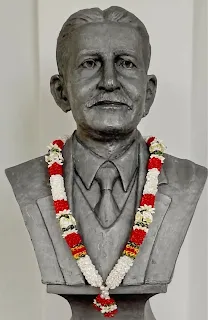Director: Roger Corman
I remember the umpteen comics I used to read at the barbershop during my childhood. All the comics had classified advertisements at the back, selling X-ray glasses, which were an adolescent boy's dream present. A pair of special vision glasses that could see through garments was something to get excited about. The only hurdle was postage, as the given PO box was in the USA. If only they had Lazada or Shopee, then...
The film effectively portrays how society treats members of the medical profession. Individuals enter the medical field with the desire to serve humanity and alleviate suffering. Unfortunately, things are not straightforward. Resources are finite, and healthcare is getting more expensive. Health workers and patients are at the mercy of those who control finance.
The business people have the money but not the compassion. What they see are dollars and cents as well as return on investments. Everything and anything can be done but at a cost. There is no place for charity. In fact, health providers are dangled with a carrot so enticing that they fall prey to material lures. They are given the illusion that they are serving the needy, but the selected target only serves to fatten the coffers of the financiers. No businessman is altruistic.
The film goes on to narrate the story of Dr Xavier, who discovers an eyedrop that extends the range of what the eyes can see beyond the usual spectrum of wavelength. He sees vast potential in his discovery, but the medical community is wary of its potential dangers. They want more research to understand its downside. Xavier has no patience for that. He wants to spread its usage as soon as possible. The concoction obviously has its side effects, making Xavier so impulsive; the effect of the ointment is so unpredictable.
In a tussle with his superior, he accidentally knocks him over a window, and he dies. Dr Xavier is now a fugitive.
He tries to make good use of his discovery by practising as a faith healer, only to realise that he is being used by his host as a cash cow. Dr Xavier then tries to use his X-ray vision to win at the casino to win lots of money to fund and expand his ointment. The casino is not going to give him money lying down. They bring in the might of the police to hunt him down...
Hence came a tragic end to what could been a novel desire to indeed improve people's health and to bring technology to where it mattered most. Instead, like today, the greatest expertise is used to treat trivial and inconsequential ailments that may be self-limiting. The counterargument against this is that it frees the burden of public healthcare. Personalised treatment can be focused on seriously ill patients. The fact of the matter is it also helps the high-heeled to jump the queue and be uppity about sharing the same facility as the plebians.



















